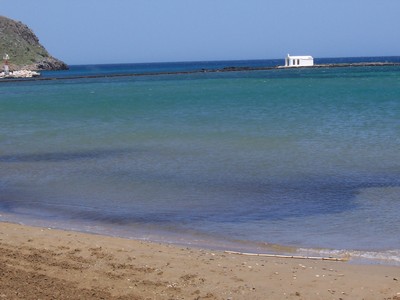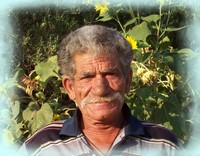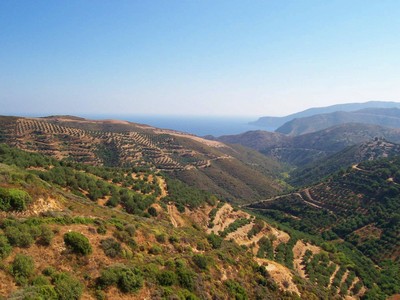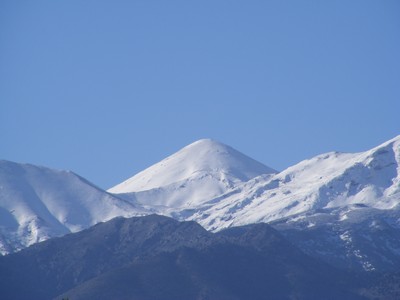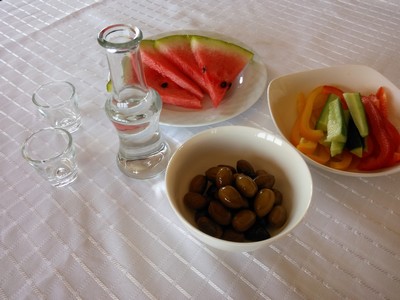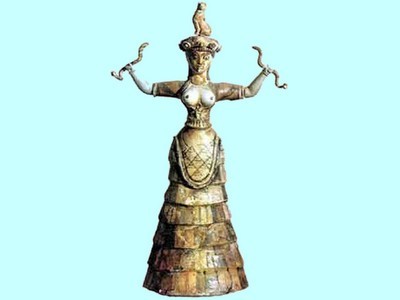Crazy about the Greek island of Crete!
Olive Oil
Made from the natural juice of the olive, olive oil is truly a precious “elixir” of life, and helps the people of the Island of Crete maintain health and long life, as well as enjoying delicious food!
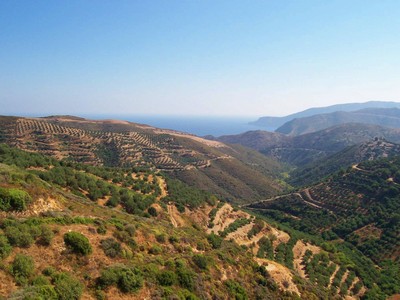
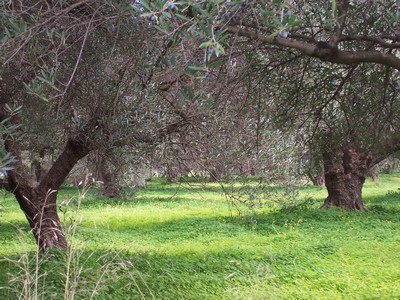
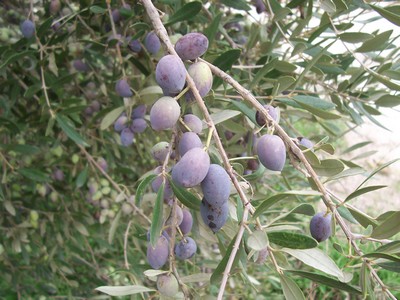
It’s a great mystery to anyone who has picked an olive from the tree to work out how someone could have thought that this small fruit would be transformed into a delicious meze on its own or into a nutritious tasty, and health giving oil. Even when looking fat and ripe - straight from the tree, it tastes awful!
But someone did work this out! And from its use in ancient times and the results of study after study, the oil that is pressed from the olive has proven to be a precious gift of nature. The ancient land of Crete is home to 30 million olive trees and the Cretans make full use of the abundant fruit and have been cultivating the olive tree since 3500 BC during the early Minoan period. The Minoan palace of Knossos has an olive press room.
Today the Cretans still eat far more olive oil than any other people in the world. And as a famous study proved, are the healthiest and longest living people.
So it's not surprising that the traditional Cretan Diet uses only olive oil rather than other fats or oils. Substituting olive oil, a monounsaturated fat, for saturated fats or polyunsaturated fats can assist your body to maintain a lower weight, reduce the effects of ageing and reduce blood pressure.
It's been shown to inhibit the growth of some cancers and is beneficial for people at risk of or who have diabetes. It also lessens the severity of asthma and arthritis. With all these health benefits it is little wonder that some hail this precious oil as a miracle cure. The octogenarian Cretan farmer and his 100 years old mother are living proof!
Cretan olive oil has to be the very in the world as it is still hand harvested using traditional methods to produce the olive oil and is entirely organic. The unpolluted Greek island is the ideal setting for truly wonderful tasting and nutritious Cretan olive oil to be produced.
Olive Oil Helping You Lose Weight
Research indicates that replacing other types of fats with olive oil helps people lose weight without additional food restriction or physical activity. A number of studies showed that when people substituted olive oil for saturated fat, they ate less food and either maintained their weight or actually lost weight. Several other studies indicate that olive oil enhances the body's breakdown of stored fat.
Olive Oil Helping you Reduce
The Effects Of Ageing
A key cause of the degeneration of cells is the build up of free radicals, which are produced by the oxidization of the fatty tissues of the body. Vitamin E, phenols and other anti-oxidizing substances protect the body from the negative effects of free radicals. Olive oil contains a high percentage of phenols and vitamin E and as a result helps delay the ageing process.
Click here for Olive Oil Beauty Tips
Olive Oil Helping You Enjoy a Healthy Sex Life
Olive oil has been claimed to be an aphrodisiac. The high levels of Vitamin E contained in olive oil are said to improve your sex life. On Crete, olive oil was given to newly weds who had to eat bread soaked in the first olive oil of the year. This ensured that their sex life got off to a very good start.
Olive Oil Helping You Towards a Healthy Heart
Olive oil contains monounsaturated fat, which can lower your risk of heart disease by reducing the ‘bad’ cholesterol levels in your blood. In contrast, saturated and trans fats found in butter, other cooking oils and hydrogenated margarines increase your risk of heart disease by increasing your total cholesterol levels. Replacing other fats in your diet with olive oil is therefore a really good move. Olive oil is the healthiest oil with no cholesterol and is rich in vitamins.
Olive Oil Helping You Prevent Disease
Diabetics or those at risk from diabetes are advised to combine a low-fat, high-carbohydrate diet with olive oil. Studies have shown this combination is better able to control blood sugar levels compared to a diet that consists entirely of low-fat meals.
A naturally occurring chemical found in olive oil is a non-steroidal anti-inflammatory agent. These anti-inflammatory agents can help reduce the severity of both arthritis and asthma. A lower incidence of osteoporosis and dementia is also found in areas like Crete and Greece where people consume large quantities of olive oil. Studies suggest that olive oil can decrease the incidence of breast cancer. Olive oil has also been positively indicated in studies on prostate, bowel, colon and endometrial cancers too.
Buying Olive Oil
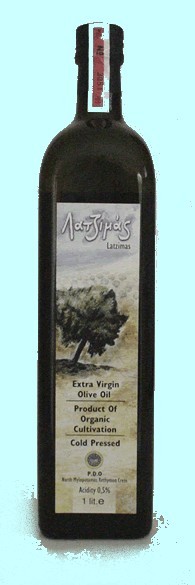
Choosing the right type of olive oil for your needs is not as difficult as it seems. Here are a few guidelines:
Extra Virgin Olive Oil
The olive oil that comes from the first "pressing" of the olive, is extracted without using heat (a cold press) or chemicals, and is awarded "extra virgin" status. It is a superior olive oil and ideal for using as a salad dressing.
Virgin Olive Oil
Virgin olive oil comes from the second pressing. This is an acceptable alternative to extra virgin olive oil but it does not have the full taste of extra virgin olive oil. This makes it ideal for infusing or adding herbs or spices to the oil.
Pure Olive Oil
Pure olive oil, often named simply olive oil undergoes some processing, such as filtering and refining. This type of olive oil is great for cooking. Added to the different grades assigned to olive oil there are variations in the characteristics of the oils dependent on the origins of the olive. Olive oil differs from one country or region to another because of the following factors:
- Type and variety of olive grown
- Location and soil conditions of the olive grove
- Weather during the growing season
- The ripeness of the Olive
- Timing of the harvest
- Method of harvesting
- Length of time between the harvest and pressing
- The pressing technique
- Methods of packaging and storage
All of these factors play their part to the individual characteristics of the olive oil. Some of the notable characteristics found in olive oils produced in some of the major olive growing areas are:
- California - Californian olive oil is typically light in both colour and flavour, with a mild fruity taste
- Crete - Cretan olive oil is simply the best in the world! Organic, hand harvested and traditionally produced it is outstanding.
- France - French olive oil is normally paler in colour and sweeter and milder in flavour than other varieties
- Greece - Greek olive oil has a strong flavour and aroma and tends to be rich green colour
- Italy - Italian olive oil is usually dark green in colour and has an herbal, peppery and grassy flavour
- Portugal - Portuguese olive oil has a strong, fully ripe flavour and is a delicious golden colour
- Spain - Spanish olive oil is typically golden yellow with a fruity, aromatic, nutty flavour
Storing Olive Oil
Olive oil should be stored in an airtight container, away from heat or light. Correctly stored, good oil has a shelf life of around 12 -18 months. It is not recommended to store olive oil in the refrigerator, as it tends to become cloudy and acquire a gel-like consistency. Leaving it at room temperature for half an hour will return to its previous texture, however.
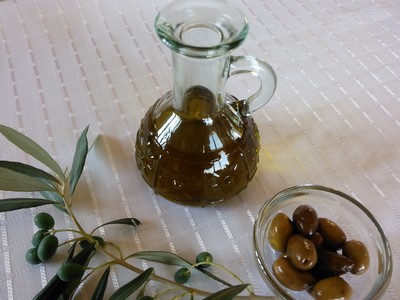
Using Olive Oil
You can add garlic, herbs or spices to olive oil and allow the flavours to infuse over a period of weeks. Or simply use the pure flavour of extra virgin olive oil for salads, dressings and vinaigrettes. You can also use it to dip fresh crusty bread into or on a baked potato or add it to mashed potatoes instead of butter. When sautéing or frying, use regular olive oil or a blended one. For deep-frying, the simple olive oil grade of "olive oil," is excellent because it has a higher smoke point than virgin or extra virgin oils.
Olive Growing
The olive tree provides wood, leaves, fruit and oil. Olive wood can be used as fuel and for carving and using in furniture manufacture. The silvery green olive leaves are fed to goats on Crete and are also used in medicinal teas for humans! Olives, both black and green, are the luscious fruits of this evergreen tree. And of course olive oil is the liquid gold from this versatile and undemanding tree.
Olive trees grow slowly, taking from five to seven years to produce fruit. When they do, each tree yields just six - eight litres of oil! However, they can have a lifespan of up to 2,000 years. Individual olive trees have supplied countless generations with their religious, culinary, medicinal, heating and lighting and beauty treatment needs for centuries.
As ripening occurs, most olives change from green to purple to dark red to black. About 10 pounds of olives are required to produce 1 litre of olive oil. Most olive trees can provide enough olives to produce about 3 litres of oil and some trees may provide 3 times that quantity.
Harvesting Olive Oil
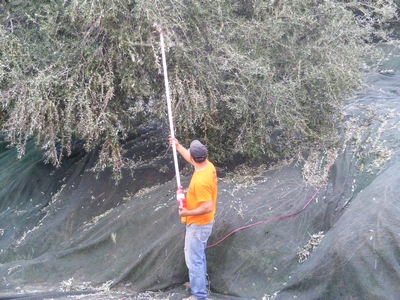
Olives must be harvested at the correct time in order to obtain the greatest quantity of oil without an increase in the acidity level. The experienced olive grower knows the exact time when the olives should be harvested. Olives that are picked too soon may contain no oil.
Olives contain oil soon after they have turned a light green colour and the volume of oil increases as they become darker green and then change to purple or black.
If the olives are allowed to ripen too long, the volume of oil will continue to increase as will the acidity level, which has a negative impact on the quality.
On Crete and in Greece in general, olives are generally harvested from early November right through to February dependent on the area and variety. Harvesting of the olives on Crete is usually a family affair with children, the elderly, women and men all contributing to the labour intensive and time consuming process.
Hand picking Cretan olives is still the best method for harvesting from the olive groves because it causes the least amount of bruising to the fruit and thus yields the best oil.
Some olive farmers beat the trees with large poles to loosen the olives that fall to nets laid on the ground. Others use large wooden or plastic devices to "comb" through the foliage and loosen the olives.
Pressing Olive Oil
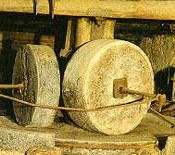
After harvesting, any remaining leaves are removed; the olives are washed and are usually pressed soon after they have been harvested. In many olive growing countries, the olives must be pressed within 72 hours to qualify as virgin oil. Any longer and the olives will begin to ferment resulting in inferior oil.
The basic processes of pressing have essentially remained almost unchanged for thousands of years. Millstone wheels grind the entire olive, including the pit, which is then placed onto mats in thin layers and then pressed to squeeze the pulp. Oil and water filter through the mats to a collection tank below. Finally the oil is separated from the water.
Want to discover even more of what Crete has to offer?
Explore hidden gems, must-visit spots, and insider tips below!
Just Some of the Reasons We Love Crete
Did you love this page? Please share it with your friends!
© Copyright All Original Content 2006 - 2025 Completely-Crete.com. All
Rights Reserved. Reproduction in whole or in part without permission is
not permitted.
Click here to learn about developing your own money-generating website
from Solo Build It! - even with little or no web experience!




